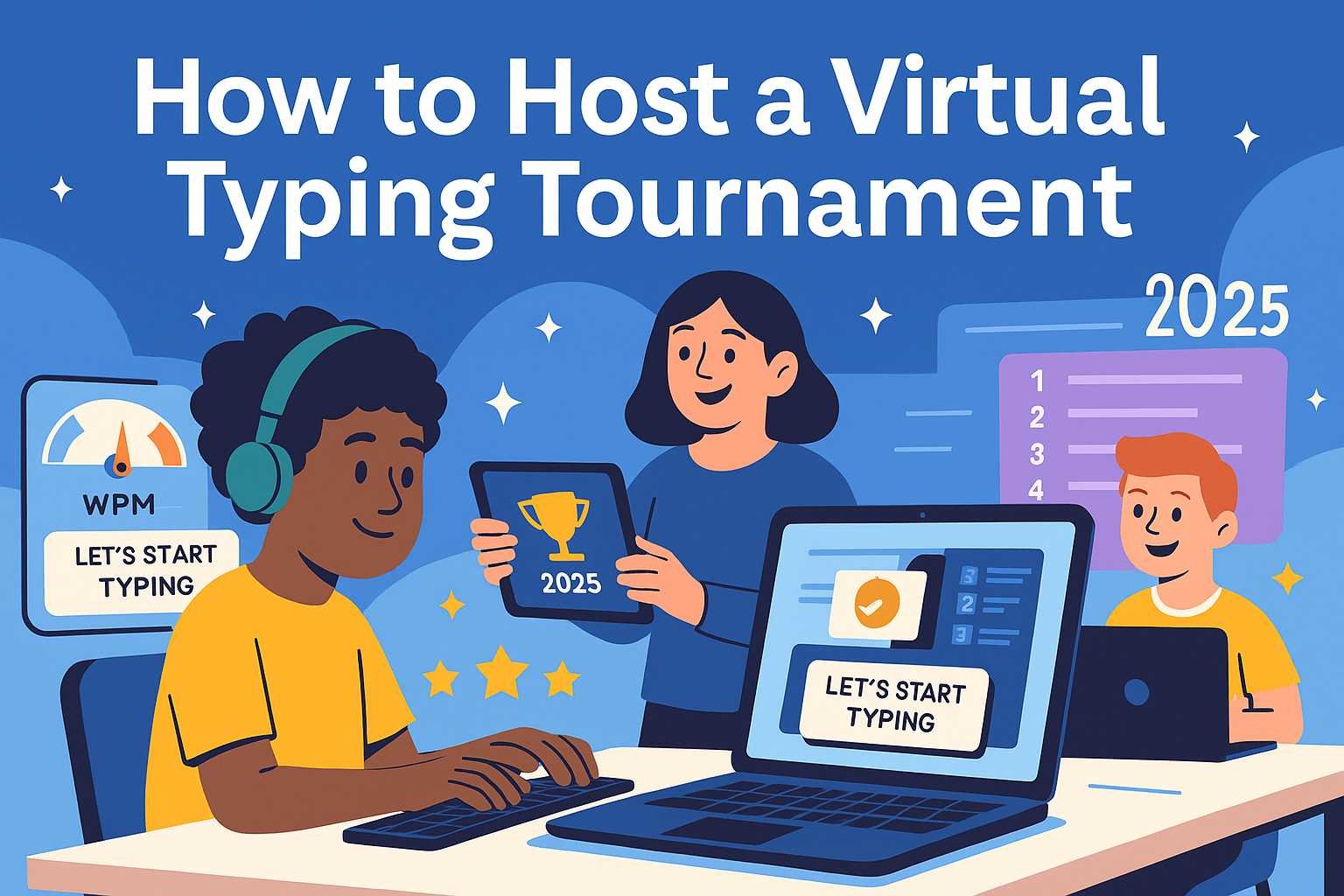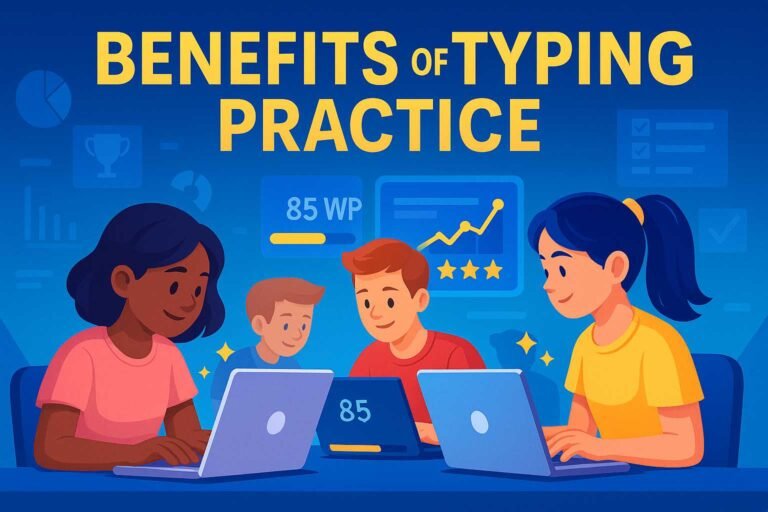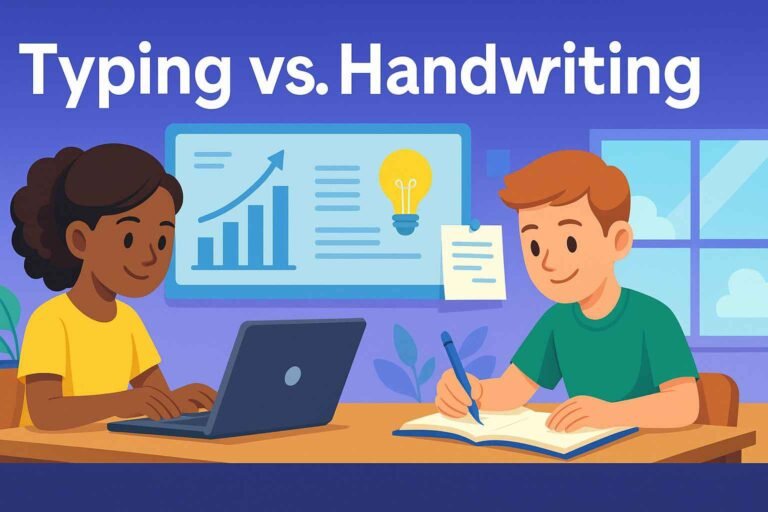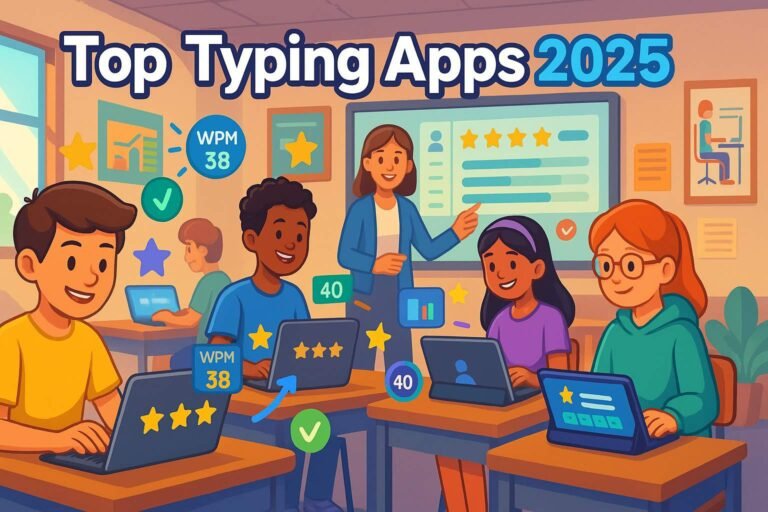How to Host a Virtual Typing Tournament for Your School in 2025
Virtual Typing Tournament events are rapidly gaining popularity among schools and educational institutions in 2025. As classrooms become increasingly digital, there’s a growing need to integrate interactive, skill-building activities that enhance student engagement and learning outcomes. Hosting a Virtual Typing Tournament is not just fun—it promotes typing proficiency, digital literacy, and healthy competition among students.
In this article, we’ll provide a complete guide on how to organize, manage, and execute a successful Virtual Typing Tournament that aligns with modern educational goals.
Table of Contents
Why Host a Virtual Typing Tournament?
A Virtual Typing Tournament offers multiple advantages for schools and students:
- Boosts Typing Speed & Accuracy: Regular practice through competition improves muscle memory and precision.
- Promotes Digital Literacy: Students learn to navigate digital platforms, schedules, and communication.
- Encourages Healthy Competition: Events motivate students to improve their typing and compete positively.
- Engages Students: Unlike traditional lessons, gamified tournaments hold students’ interest for longer.
- Accessible Anywhere: Perfect for remote, hybrid, or in-person learning environments.
Tools & Platforms for Virtual Typing Tournament
Top Platforms to Consider
- Nitro Type – A high-speed competitive typing game ideal for all ages.
- Typing.com – Offers classroom integration and progress tracking.
- 10FastFingers – Great for quick races and global rankings.
- Keybr.com – Focuses on skill development with minimal distractions.
To ensure your students stay engaged and motivated during the tournament, consider using platforms that mix fun with learning. For example, Nitro Type is a great choice for competitive, real-time races, while Nitro Math adds a unique challenge with math-based speed tests.
👉 If you’re still deciding between platforms, check out our full comparison on Nitro Type vs Nitro Math — a detailed breakdown of both tools’ strengths for classroom learning.
Platform Comparison Table
| Platform | Ideal For | Classroom Tools | Cost |
|---|---|---|---|
| Nitro Type | Speed-based games | Yes | Free |
| Typing.com | Skill development | Yes | Free |
| 10FastFingers | Quick tests | Limited | Free |
| Keybr.com | Accuracy and pacing | No | Free |
Step-by-Step Guide to Organizing a Virtual Typing Tournament
1. Set Clear Objectives and Dates
Define what you want to achieve (e.g., fastest typist, most improved). Set a date that gives enough prep time.
2. Choose a Reliable Platform
Based on your student needs and tech comfort, choose the right tool. Nitro Type is a great option for competitive fun.
3. Develop Tournament Rules
- Set age categories or grade levels
- Define scoring criteria (speed, accuracy, consistency)
- Decide on rounds and elimination formats
4. Register Participants
Use Google Forms or classroom software (like Google Classroom) to sign up students. Include fields for name, grade, and typing level.
5. Conduct Practice Sessions
Hold 2–3 mock rounds using the selected platform to get students comfortable.
6. Run the Tournament
- Use video conferencing tools like Zoom or Google Meet
- Screen share scoreboard and monitor progress live
- Offer encouragement during breaks to keep morale high
7. Celebrate Winners
- Award digital certificates or badges
- Post results on school bulletin or website
- Host a follow-up event to maintain momentum
Promoting the Virtual Typing Tournament
Use School Communication Channels
- Add event details to school newsletters and bulletins
- Share announcements via internal email systems
Tap Into Social Media
Create engaging posts with visuals on Facebook, Instagram, or Twitter to generate buzz.
Collaborate with Tech Departments
Ask teachers or IT staff to help manage logistics and troubleshoot during the event.
Common Mistakes to Avoid
- Skipping Trial Runs: Always do test rounds to resolve technical issues
- Overlooking Internet Speed: Ensure students have stable connections
- Unclear Scoring Rules: Communicate rules clearly to avoid confusion
- Lack of Engagement: Make it exciting! Use music, countdowns, and visuals
Real-World Example
Last year, Jefferson Middle School hosted a Virtual Typing Tournament using Typing.com. With over 300 participants, they ran weekly elimination rounds and awarded digital medals to top performers. The school reported a 22% increase in average typing speed after the event.
Final Tips for Success
- Use countdown timers and sound effects for excitement
- Encourage students to cheer for their classmates
- Create a shared Google Drive folder for storing scores and highlights
- Record the final round and share it as a school memory
FAQs About Hosting a Virtual Typing Tournament
Q1: What is the best platform for beginners?
A: Typing.com is ideal for beginners due to its tutorials and built-in tracking.
Q2: Can we host this for multiple schools?
A: Yes, just ensure coordination via shared calendars and tech platforms.
Q3: How can we ensure fairness?
A: Use the same test for all and ask students to screen-share during races.
Q4: What’s the ideal age group?
A: Grades 3–10, depending on typing proficiency.
Conclusion
A Virtual Typing Tournament in 2025 offers a powerful, fun, and educational way to improve typing skills while fostering community and collaboration. Whether you’re a tech-savvy educator or a school looking to digitize your learning activities, hosting your first virtual competition is easier than ever.
Need a platform recommendation? Try Typing.com or explore game-style competition on Nitro Type.

Hi, I’m Kamran Khatri, the author behind NitroType.blog. I share typing speed tips, Nitro Type updates, gaming tricks, and productivity hacks to help you type faster and smarter. My goal is to make typing fun while helping you improve your skills like a pro. If you’re passionate about typing or want to level up your Nitro Type game, you’re in the right place!







